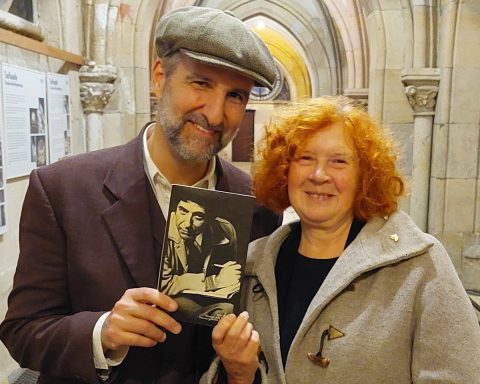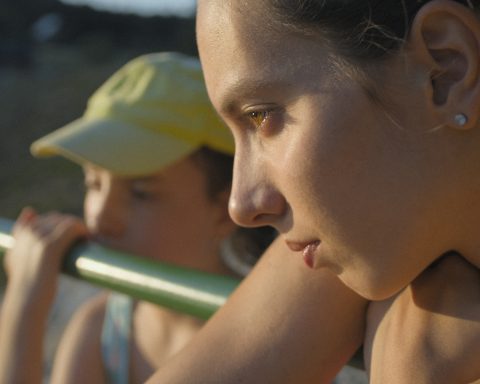I am so happy to finally share my top 10 films of 2020 with you. Making these end of the year lists is always the most exciting and daunting writing privilege for me.
There is no better platform to highlight unique voices, new talent and share the magic of great cinema than to find the reasons why these films stay with you so much.
My absolute favorite pastime and hobby, watching a good film in a movie theatre, was completely turned on its head and probably irreparably damaged in 2020. Countless movie theatres declared bankruptcy and Warner Bros. announced they will be releasing all their major motion pictures simultaneously in theatres and on streaming in the US. The elevated presentation and intimate experience of the theatre has never been this much under fire.
In spite of all these circumstances, 2020 had an impressive amount of new releases.
Most of them had to opt for a streaming release, some I got to see in the few festival and open theatre time slots last year. Overall, it has been a very strange and mixed year for film. Unsurprisingly, this list has fewer major releases than ever before. Most blockbusters were pushed back to 2021, in the hopes that they will be screened across the world again soon.
However, this gave smaller films the chance to shine and become a subject of public discourse without being overshadowed by huge marketing campaigns for tent-pole studio releases. So check your online accounts and look up these gems because they truly were some of the best experiences I had in 2020 and are all worth the few extra bucks to go outside the usual streaming on Netflix fare.
10. The Invisible Man by Leigh Whannell
We are kicking off this list with a true tour-de-force, both in terms of this movie’s high suspense factor throughout its runtime and because of Elisabeth Moss’ visceral performance. She once again manages to elevate a solid genre film into a captivating, universal experience. Based on the timeless book of the same name by H.G. Wells, this modern reinterpretation of the text takes into account our modern world while never discarding any of the original’s potent themes. The titular invisible man is now a tech billionaire and abusive, controlling partner to Moss who is kept hostage in his modernist luxury estate.
Director Leigh Whannell, primarily known for his work on the first Saw movie and the Insidious franchise, brings his instincts for horror and ratcheting up tension to this rather somber and grounded scenario.
A survivor of domestic abuse is our heroine and her abuser has infinite resources and a singular focus to gaslight and control our protagonist.
This absolutely sounds like a film where so much can go wrong. But Moss brings an incredible amount of humanity and raw emotion to her role to elevate The Invisible Man from a generic horror flick to a tense, riveting struggle to set yourself free from your abuser.
9. Noodle Kid by Ning Huo
An outlier in this list, Noodle Kid was the most impressive film that I got to see at last year’s DOK festival. The documentary follows Ma Xiang, a Hui Chinese kid growing up in the predominantly Han Chinese-populated Quinghai province. Like most Hui Chinese, Ma and his family are devout Muslims and on the lower spectrum of wealth distribution in their province. The filmmakers got an intimate look at Ma’s everyday upbringing at his rural home, living with his grandparents and hoping for his gravely indebted father to be released from prison. He and his brother play around on their small farm until one day, Ma has to take on the burden of the family’s growing debt.

He is sent to his uncle’s small noodle restaurant empire in the next metropolitan area to learn the intricacies of noodle pulling and help his family’s financial hardships. The journey we follow Ma on is challenging and captivating all the way through. His jarring move from rural innocent childhood to challenging teenage city life, his mistreatment by many of his elders, his complex relationship to faith, modernity and growing up are truly unique and expertly captured.
Noodle Kid shows how narratively compelling documentaries can be while never discounting the harsh realities and societal ills it captures.
8. Sound of Metal by Darius Marder
Riz Ahmed is the most exciting star of our current times. Ever since his impressive lead performance in The Night Of, he has been ubiquitously outstanding in the entertainment landscape. Dipping his toes into both the Star Wars and the Marvel franchises with Rogue One and Venom, respectively, he also used his new-gained influence in the industry to get more daring and personal projects made. One of these is the momentous yet moving Sound of Metal.
A deeply heart-felt and empathetic portrayal of hearing loss
Ahmed plays a drummer whose hearing abilities fade abruptly while on tour. The confusion, anger and despair that accompanies him in this experience are expertly captured by rookie director Darius Marder. It is impressive how confidently executed and well-produced this film is, considering this is Marder’s first feature film production.
Truly a film for our times, the protagonist Ruben has to learn to live with a new reality he could not anticipate and whose pains and challenges can be so overwhelming.
The movie’s central theme of finding true stillness as a key to life in general is beautifully accomplished by pitting it against Riz Ahmed’s live wire-energy and twitchy tendencies.
Confronting our inner anger and sadness at the restrictions we have to live with these days dovetails darkly well with this film about finding peace and calm in a more challenging new normal.
7. Nowhere Special by Uberto Pasolini
Middle of the day, middle of the socially-distanced full-capacity theatre, and I’m bawling my eyes out at this absolute tear jerker of a movie along with everyone else in the room. Nowhere Special follows working class single father John who knows he will die soon. It’s terminal and he has to be pragmatic. That also includes finding the right people for his son to take care of once he is gone. An extremely tragic premise whose emotional beats are only intensified by James Norton’s sensitive yet grounded performance.
It is a quiet and tender film that takes its time to show the special relationship between a father and his son.
Nowhere Special does this through the intense process of interviewing potential successors for the parenting responsibilities of John. They run the gamut of varying social stands, familial structures and parenting styles. But they all have their good and bad.
And it all shows just how impossible of a task it is to decide what environment, what people are best for your child when all you want to do is keep taking care of him yourself.
Nowhere Special is definitely not a very subtle drama in that regard. Uberto Pasolini, known for his melodramatic tendencies, pulls no punches to get the most emotions out of a scene. But sometimes, that is just the right recipe for a cathartic, crying-in-semi-public experience.
6. Wolfwalkers by Tomm Moore
Finally, to round out our first half, we have a real crowd-pleaser for all ages. From the fantabulous fingers of Irish hand-drawn animation studio Cartoon Saloon comes the conclusion of their loosely connected trilogy on Irish folklore. Beginning with the simplistic but stunning The Secret of Kells, the studio and its head and director Tomm Moore seem get better with each new film they make. Impressively underlined, they have truly reached new heights in their abilities in their newest, Wolfwalkers. A film that bolsters the animated beauty and excellence we have come to expect from their works.
Building on their animation film expertise, Cartoon Saloon have now found a way to combine their honed technical skills with concise yet rich story-telling that finds visual ways to convey emotions, time and even world-building to an impressive degree.
The eponymous Wolfwalkers are a mother and daughter living in the woods in 17th century British-occupied Ireland. They can transform into wolves and live with a pack of them at their beck and call. However, the protagonist lives on the other side of this divided world of creeping modernity. Robyn Goodfellowe is the daughter of a hunter. Her father is tasked with eradicating the local wolf population.
This concept of a heroine finding herself between two opposing worlds, trying to reconcile nature and civilization, has already been done expertly many times. Most famously in many Studio Ghibli features, like Princess Mononoke or Nausicaä.
Yet, Cartoon Saloon’s unique and gorgeous animation sets it apart from these spiritual relatives by combining its authentic heritage in Irish folklore and history with daring uses of visual storytelling that draw layers upon layers of meaning into stunning hand-drawn vistas.

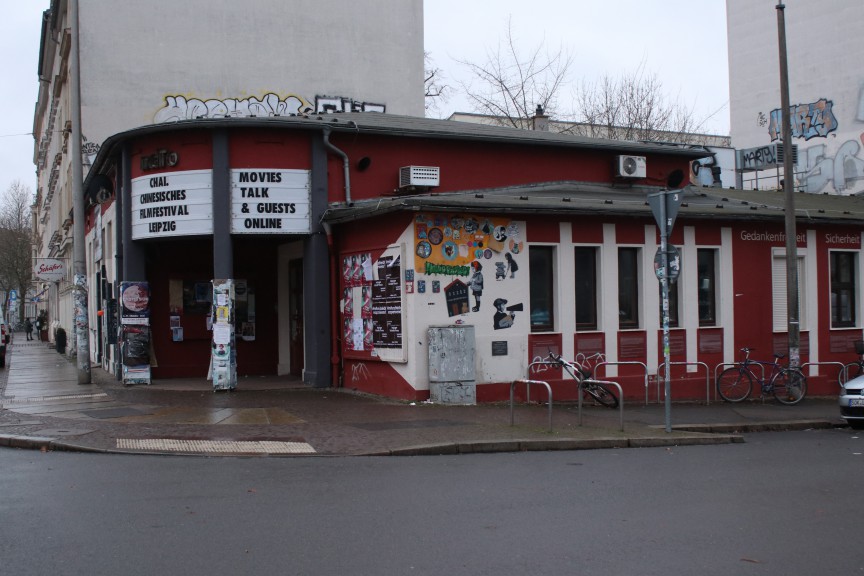

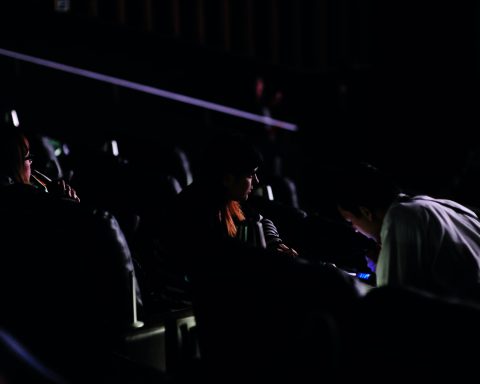
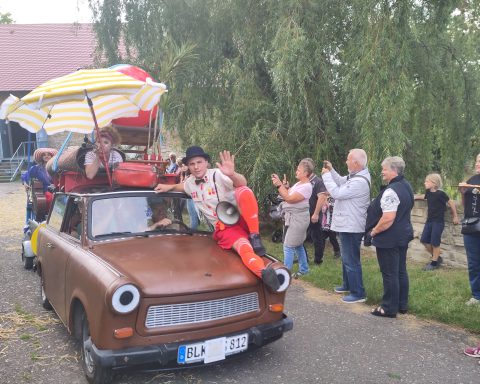

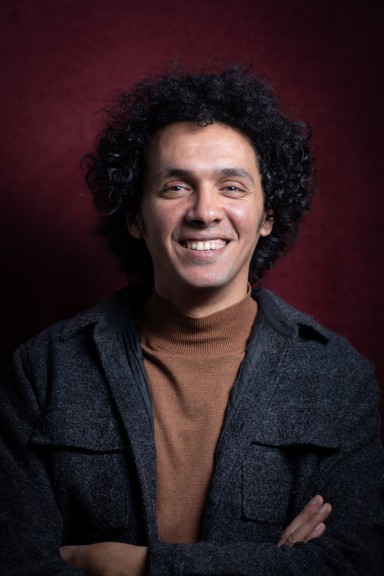


![Wine & Paint event on 9 Nov. 2024 at Felix Restaurant, Leipzig. Photo: Florian Reime (@reime.visuals] / Wine & Paint Leipzig](https://leipglo.com/wp-content/uploads/2024/12/pixelcut-export-e1733056018933-480x384.jpeg)
